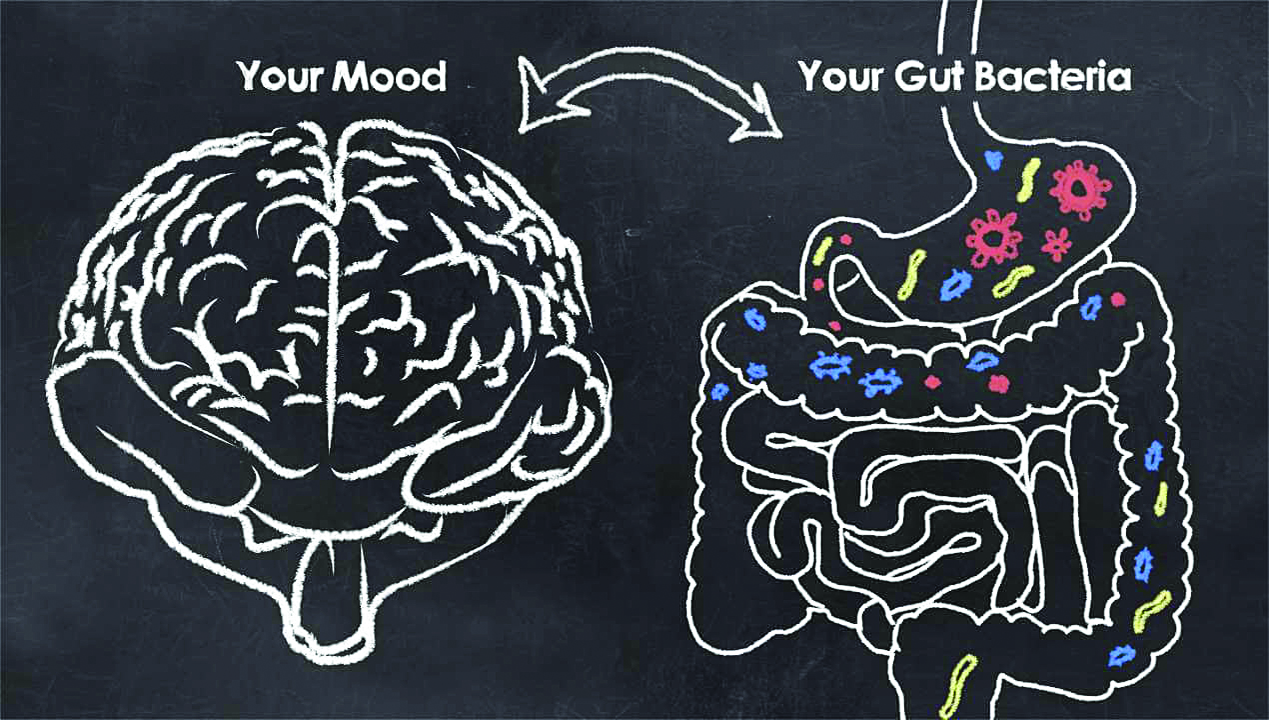 Many individuals face difficulties in both – falling asleep and maintaining a restful sleep. While common causes include excessive caffeine intake, stress or the natural ageing process, there is one crucial aspect often overlooked, in relation to sleep issues – Digestive Distress. Did you know that unresolved gut problems could be the primary obstacle preventing you from enjoying eight hours of uninterrupted sleep?
Many individuals face difficulties in both – falling asleep and maintaining a restful sleep. While common causes include excessive caffeine intake, stress or the natural ageing process, there is one crucial aspect often overlooked, in relation to sleep issues – Digestive Distress. Did you know that unresolved gut problems could be the primary obstacle preventing you from enjoying eight hours of uninterrupted sleep?
Discovering The Connect Between Gut-Health And Sleep:
Poor gut health can impact sleep quality. The fascinating relationship between our gut and sleep has become a prominent topic in wellness today. Research has unveiled the significant role that our gut-health plays in regulating our sleep-wake cycles as well as overall sleep quality.
The gut is often referred to as our ‘second brain’. It houses trillions of microbes that communicate with our nervous system through the gut-brain axis. Imbalances in this ecosystem can come from factors such as unhealthy dietary choices, chronic stress, or environmental influences, which result in inflammation and disruptions in sleep.
Your gut bacteria can influence your sleep quality, and conversely, the quality (or lack thereof) of your sleep can impact your gut health. Regrettably, many individuals find themselves trapped in a vicious cycle, struggling to obtain sufficient rest, which further damages their gut health and perpetuates difficulties in falling asleep and staying asleep. Moreover, studies have shown a higher prevalence of sleep disorders among individuals suffering from Irritable Bowel Syndrome (IBS), highlighting the undeniable connection between gut health and sleep.
What Are The Symptoms Of Poor Gut Health?
Gaining insight into the relationship between compromised gut health and its effects on sleep starts by identifying the characteristic indicators of an imbalanced gut. Typical signs of digestive distress encompass persistent bloating, gas, diarrhea, constipation, acid reflux, and challenges with weight management.
Nevertheless, as our understanding of the gut deepens, we increasingly recognize its impact extending well beyond the confines of the digestive system, often presenting in seemingly unrelated symptoms including Anxiety, Autoimmune disorders, Cognitive impairment, Mood disorders, Food sensitivity, Frequent headaches, Imbalances in hormonal levels, Joint discomfort, Insufficient nutrient levels and Skin issues (such as acne, eczema, or rashes).
Identifying these symptoms is extremely important, as these can provide valuable insights into whether your sleep difficulties stem from poor gut health or other underlying factors.
Holistic Approaches To Enhance Your Gut Health And Your Sleep Patterns Naturally:
Depending on the specific gut health issues you face and/or any other underlying dysfunctions, your healthcare provider will recommend tailored approaches. However, in general, here are some effective methods you can start implementing today to support a healthier gut and improve your sleep quality:
Optimize Your Dietary Choices: To promote a healthy gut and better sleep, it’s crucial to eliminate foods that harm your gut, while incorporating nutrient-dense superfoods. Probiotic-rich foods like yogurt and sauerkraut replenish your gut with beneficial bacteria, while fibre-rich vegetables provide nourishment for existing gut bacteria. Additionally, certain superfoods aid in the production of neurotransmitters and melatonin. Walnuts, being a natural source of melatonin, can be particularly beneficial. Other favourites include cherries and chamomile tea.
Targeted Supplementation: While a healthy diet is essential, supplements can complement your healing journey. A daily probiotic supplement ensures a consistent intake of beneficial bacteria for your microbiome. Taking a magnesium supplement supports proper neurotransmitter function and promotes relaxation before bedtime.
Establish A Bedtime Routine: Preparing yourself for a restful night’s sleep begins even before you climb into bed. By reducing the use of technology a few hours before sleep and incorporating practices like mindfulness and aromatherapy, you create optimal conditions for high-quality, uninterrupted sleep.
Manage Stress Levels: An imbalance in cortisol (your stress hormone) can greatly hinder your ability to fall asleep and negatively affects gut health. Since cortisol is released during periods of stress, it is crucial to effectively manage stress levels to ensure quality sleep each night.
In conclusion, a contented gut has a significant impact on your overall well-being. It influences various aspects of your sleep-wake cycle, including circadian rhythms, neurotransmitter production, and hormone balance. By addressing underlying gut dysfunctions and embracing natural dietary and lifestyle approaches, you can significantly improve your chances of achieving a full 8-hour, restful sleep every night.

- Strengthen Your Constitution This Republic Day! - 25 January2025
- Become A ‘Smart Sipper’ This Festive Season! - 28 December2024
- Beat The Winter Sniffles - 23 November2024
